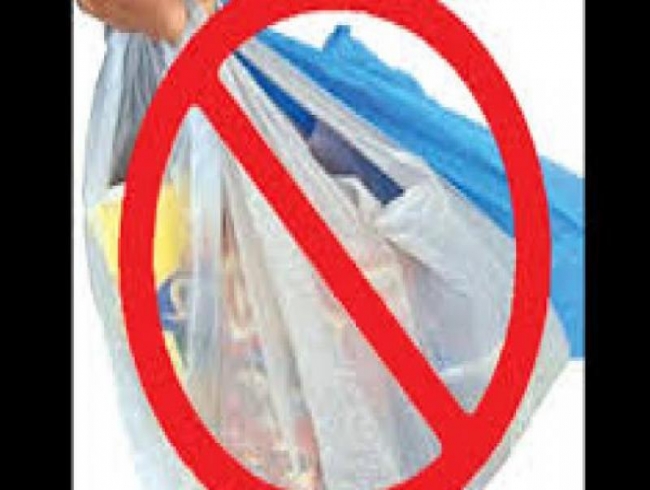Why haven’t we done anything about plastic?
Posted June 2nd, 2018, 10:24 AM IST

The term "plastic" is derived from the Greek "plastikos" - meaning fit for molding. Plastics are polymers which are basically substances or molecules made up of many repeating molecular units, known as monomers. The monomers of hydrogen and carbon (hydrocarbons) are linked together in long chains to form plastic polymers. However it is also interesting to know that raw hydrocarbon material for most synthetic plastics is derived from petroleum, natural gas or coal. The first totally human-made, completely synthetic plastic came about in 1907 when Belgian-born, New York-based Leo Baekeland used hydrocarbon chemicals he derived from coal to create Bakelite, which came to be used in radio and television casings, kitchenware and even toys. And thus emerged the plastic era, especially taking off, following World War-II, when all kinds of day to day household items began to be made of plastics.
Most plastics are made from petroleum or natural gas, non-renewable resources extracted and processed using energy-intensive techniques that destroy fragile ecosystems. The manufacture of plastic, as well as its destruction by incineration, pollutes air, land and water and exposes workers to toxic chemicals, including carcinogens. Plastic packaging - especially the ubiquitous plastic bag - is a significant source of landfill waste and is regularly eaten by numerous marine and land animals, to fatal consequences. Synthetic plastic does not biodegrade. It just sits and accumulates in landfills or pollutes the environment. Plastics have become a nightmare, prompting local governments all over the world to implement ban on almost all types of plastic. Plastic pollution may not even be visible to the naked eye as research is showing that microscopic plastic particles are present in the air at various locations throughout the world and in all major oceans. Plastic is now ubiquitous.
In terms of health risks, the evidence is growing that chemicals leached from plastics used in cooking and food/drink storage are harmful to human health. Some of the most disturbing of these are hormone-mimicking, endocrine disruptors, such as bisphenol A (BPA) and phthalates.
The plastic polycarbonate - used for water bottles and various other items requiring a hard, clear plastic - is composed primarily of BPA. Scientific studies have linked BPA to health problems that include abnormalities in chromosomal and reproductive systems, impaired brain and neurological functions, cancer, cardiovascular system damage, adult-onset diabetes, early puberty, obesity and resistance to chemotherapy. Exposure to BPA at a young age can cause genetic damage, and BPA has been linked to recurrent miscarriage in women.
The health risks of plastic are significantly amplified in children, whose immune and organ systems are developing and are more vulnerable. Of the thousands of chemical additives added to plastics - and which manufacturers are not required to disclose - one type commonly added to plastics are "plasticizers," which are softening agents making it easier for the polymer chains to move and be flexible. For example, the commonly used and extremely toxic plastic polyvinyl chloride (PVC) can contain up to 55% plasticizing additives by weight. These are generally phthalate chemicals. Phthalates are known to disrupt the endocrine system as well, and have been linked to various health conditions including cancers. Certain phthalates have been banned in Europe and the U.S. for use in certain products, such as toys.
After reading all this one may be depressed to no end. But don't despair…! It is time for all of us to take action and do our part to decrease the use of plastics and help solve the problems of plastic pollution. One such alternative can be Bioplastics. This can be widely defined as plastics made, at least in part, from renewable biological raw materials and/or which contain additives to make them biodegrade quickly. They currently account only for about 1.5 of global plastics production: about 2.0 million tonnes of bioplastics in 2012, compared with 280 million tonnes of traditional plastics in 2011. However, some experts predict Bioplastics could eventually replace 90% of the traditional plastics surrounding us today.
There is a huge and growing community of like-minded folks all over the world who are working to decrease plastic use and pollution and create tangible changes at all levels - personal, local, regional, national, global...
- Kukatpally, Old City and Tolichowki made their mark as the city's top street food hubs
- Political leaders attend grand Alia Balai programme in Hyderabad
- Over 7,500 daily steps before surgery tied to fewer complications
- Deepika talks mental health with corporate bosses
- Sweet Shop - Owners of Calcutta and Other Ideas: Taste the universe
- Life in motion
- Witness The Most Riveting Courtroom Drama of The Year
- Mind-Body Synergy: Embracing Profound Connection Between Mental and Physical Health
- Red Haute Alert
- WWF-India Hosts Second Earth Series Talk: "A Tale of Two Cats"
- Hyderabad entrepreneurs ‘Modify’ clothes from aloe vera to orange peel
- How to Apply Onion Juice to Hair
- Patriotism is in thing, it’s Tricolour everywhere
- Celebs too wear fakes of reputed brands
- Elon Musk on fun trail says 'buying Coca Cola next'
More Lifestyle News
- Vijay Sethupathi’s heartwarming selfie with elderly voter goes viral
- ‘aha’ unveils promo for ‘Sarkaar Season 4’ featuring Sudigali Sudheer as host
- Record rains in UAE flood Dubai International Airport, disrupt travels
- Akshay Kumar joins Vishnu Manchu’s ‘Kannappa’ shoot in Hyderabad
- Suhana Khan shares joyful photos with Ananya Panday after KKR victory
- Kartik Aaryan says he’s ready for love, asks Neha Dhupia to find someone for him
- Indian film stars extend Ugadi, Gudi Padwa, and Navreh wishes
- Mrunal Thakur honored for ‘Hi Nanna’ performance, details inside
- Prithviraj-starrer ‘The Goat Life’ rakes it in: Rs 100 cr in 9 days
- Rashmika Mandanna’s ‘Srivalli’ takes center stage in Pushpa 2: The Rule poster drop
A PHP Error was encountered
Severity: Warning
Message: file_get_contents(): http:// wrapper is disabled in the server configuration by allow_url_fopen=0
Filename: views/newsdetails.php
Line Number: 29
Backtrace:
File: /home5/am2pm/public_html/application/views/newsdetails.php
Line: 29
Function: file_get_contents
File: /home5/am2pm/public_html/application/controllers/News.php
Line: 135
Function: view
File: /home5/am2pm/public_html/application/controllers/News.php
Line: 83
Function: newsdetails
File: /home5/am2pm/public_html/index.php
Line: 315
Function: require_once
A PHP Error was encountered
Severity: Warning
Message: file_get_contents(http://www.indiaaffiliates.in/ads.php?size=300X250): failed to open stream: no suitable wrapper could be found
Filename: views/newsdetails.php
Line Number: 29
Backtrace:
File: /home5/am2pm/public_html/application/views/newsdetails.php
Line: 29
Function: file_get_contents
File: /home5/am2pm/public_html/application/controllers/News.php
Line: 135
Function: view
File: /home5/am2pm/public_html/application/controllers/News.php
Line: 83
Function: newsdetails
File: /home5/am2pm/public_html/index.php
Line: 315
Function: require_once














